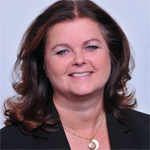Teresa Fama: Rheumatologist to Chair Public Advisory Council
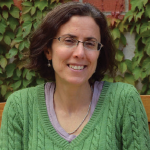 Teresa Fama, MD, is the new chair of the New England Comparative Effectiveness Public Advisory Council (CEPAC). A rheumatologist who practices in Berlin, Vt., Dr. Fama has previous experience in public policy, specifically health policy.
Teresa Fama, MD, is the new chair of the New England Comparative Effectiveness Public Advisory Council (CEPAC). A rheumatologist who practices in Berlin, Vt., Dr. Fama has previous experience in public policy, specifically health policy.
Before she began her second career as a physician, Dr. Fama was the deputy director of The Robert Wood Johnson Foundation’s Chronic Care Initiatives in HMOs program. She says as much as she loved the clinical work as a rheumatologist, “I found myself missing the policy world.”
Now as chair of CEPAC, she has the best of both worlds. “When I was doing policy, I didn’t have the medical knowledge I now have.” With the combination of policy experience and medical knowledge, she is well equipped to lead CEPAC in its task to assist New England’s patients, physicians and policymakers in improving the region’s quality and value of healthcare by producing actionable information.
In February, CEPAC produced action guides regarding management options for Type 2 diabetes patients. Other topics on the horizon are new high-cholesterol drugs and biologics.
“My participation in the council provides the opportunity for me to participate in helping improve the quality and effectiveness of treatment for many, including my own patients here in central Vermont,” says Dr. Fama.
Lionel B. Ivashkiv: New Chief Scientific Officer at Hospital for Special Surgery
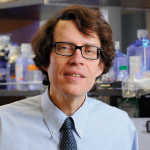 Lionel B. Ivashkiv, MD, scientist in autoimmune, inflammatory and musculoskeletal diseases at Hospital for Special Surgery (HSS), began his job as chief scientific officer in June.
Lionel B. Ivashkiv, MD, scientist in autoimmune, inflammatory and musculoskeletal diseases at Hospital for Special Surgery (HSS), began his job as chief scientific officer in June.
“I am honored to work even more closely with colleagues who are committed to building on HSS’ tradition of interdisciplinary translational research,” says Dr. Ivashkiv. “Together, we will advance Special Surgery’s research mission to translate breakthrough findings into new ways of treating and preventing serious orthopedic and rheumatic conditions.”
As chief scientific officer, he is responsible for organizing HSS’s basic, translational and clinical research. He’ll work to develop and implement strategic plans to maintain the HSS leadership position in musculoskeletal and autoimmune disease research. Dr. Ivashkiv’s own research involves understanding how the inflammation process leads to musculoskeletal damage.
“Though lots of people have talked about breaking down the barriers between researchers, no one has found the best way to do it. HSS is working on it,” says Dr. Ivashkiv. “What’s unique about HSS is the team-based approach to research and the linkage between basic science and clinical research. We are committed to asking meaningful scientific questions and then figuring out a way to apply advances in knowledge to impact patient care.”
George C. Tsokos Awarded 2015 Lupus Insight Prize
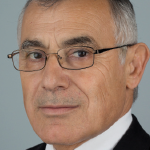 George C. Tsokos, MD, chief of the Rheumatology Division at Beth Israel Deaconess Medical Center and professor of medicine, Harvard Medical School, has been selected as the 2015 recipient of the Lupus Insight Prize.
George C. Tsokos, MD, chief of the Rheumatology Division at Beth Israel Deaconess Medical Center and professor of medicine, Harvard Medical School, has been selected as the 2015 recipient of the Lupus Insight Prize.
The Lupus Insight Prize is a collaborative initiative among the Alliance for Lupus Research (ALR), the Lupus Foundation of America (LFA) and the Lupus Research Institute (LRI). The $200,000 prize recognizes “a major, novel insight and/or discovery that has the promise of changing thinking about lupus as well as a high likelihood of generating further advances in the diagnosis and treatment of the disease,” according to the award announcement.
Dr. Tsokos’ work involves studying the molecular link between the immune system and the kidney damage seen frequently in patients with lupus nephritis, a dangerous complication of lupus. His research also aims to develop a targeted delivery of drugs directly to kidney cells that block the action of a single destructive enzyme that “derails function of certain podocytes [highly differentiated epithelial cells of the visceral layer of bowman capsule of the kidney] and lets protein leak if they don’t work,” says Dr. Tsokos. “We want to target specific cells to minimize side effects.”
Gerald Nepom: Director of Benaroya Research Institute to Step Down
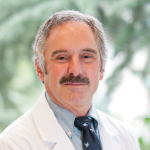 After 30 years, Gerald Nepom, MD, will leave his post as director of Benaroya Research Institute (BRI) Virginia Mason in Seattle. Dr. Nepom is credited with leading the institute in international prominence through research into rheumatoid arthritis, diabetes, multiple sclerosis, allergies and other immune-system disorders. “[A]n amazing 30-year history with major scientific and medical impacts,” says Kristi Pangrazio, Board of Directors chair.
After 30 years, Gerald Nepom, MD, will leave his post as director of Benaroya Research Institute (BRI) Virginia Mason in Seattle. Dr. Nepom is credited with leading the institute in international prominence through research into rheumatoid arthritis, diabetes, multiple sclerosis, allergies and other immune-system disorders. “[A]n amazing 30-year history with major scientific and medical impacts,” says Kristi Pangrazio, Board of Directors chair.
He will continue with his own research, which focuses “on identifying and understanding molecular and genetic mechanisms contributing to pathogenesis of autoimmune disorders and using this information to evaluate autoreactive T cell lineage and fate determination.”
Dr. Nepom will also continue his 10-year tenure as director of the Immune Tolerance Network (ITN). In 2014, BRI was awarded $27 million annually for seven years to provide management and oversight of ITN’s research of the immune system diseases—one of the largest grants the National Institutes of Health has ever given.
As much as he characterizes his being director of BRI as “an exciting and fulfilling experience,” Dr. Nepom feels it is time to pass the baton. He says the research requires looking forward at least five years into the future. He told the BRI Board of Directors he thought “the institute deserved someone invested in the long-term strategic plan, and ITN deserves a focused effort.”
Jane Buckner, MD, is currently the associate director and will assume the title of president of BRI (with duties that are similar to Dr. Nepom’s) at the end of 2015.
Ann-Marie Lindstrom is an independent writer and editor based in the Tucson, Ariz., area.
Send Us Your News!
Have an award, appointment or announcement to share with your colleagues? Send the details to [email protected], and we may publish it in a future edition of Movers & Shakers.

